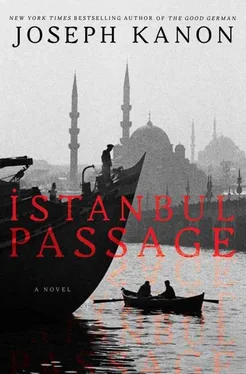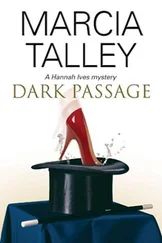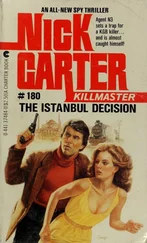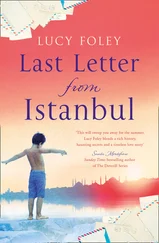“Yes.”
“So he was alone. Maybe I’m not so important. And now someone’s raising hell. Melnikov. Whose idea to send one? You’ll pay for this. It never changes.”
“You knew him?”
“Political officer,” he said, eating. “You know what that means? At Stalingrad? The Nazis in front of you, Melnikov behind. No cowards there. No Stalin jokes. He shot them on the spot. Easier than sending them back to the gulags. Less paperwork.” He crumpled up the bag. “But you have all that in Bucharest. His staff list. That was my deposit. You want to do that again? And then again with the tape recorder? Over and over until a slip, a name you forgot, or maybe didn’t forget. Well, everyone does it.”
“Save it, then. For the tape recorder. I’m not here to interrogate you.”
“No? What, then?”
“Just get you on a plane.”
“Ah, to be my friend. Easier to get them to talk. A little trust. So, you have a name? You never said.” Familiar, somebody at a bar. He got up to pour the tea.
Leon looked over, trying to imagine it, the abattoir, putting bodies on hooks. An ordinary man, making tea. “Leon,” he said.
“Leon?” Asking for the rest.
“Bauer.”
Alexei handed him a glass, smiling a little. “A German name. Farmer,” he said, translating. “Also pawn.” He opened his hand to the little board. “In the game. So that’s you, the pawn?”
“That’s everybody.”
Alexei looked up at him, pleased. “A philosopher. Something new. It’s different with the Russians. No sandwiches, either. Just fists.”
“When they interrogated you?”
“My friend, if they had done that you would see it,” he said, putting a hand to his face. “The bones. You see the prisoners after, their faces are different. They take pictures for the files. If they’re alive.”
“So you were lucky.”
He shrugged. “I ran. I knew what they were. That was my job, to know about them.” He took a sip of tea. “But you know that. And you’re not here to interrogate me.”
Leon looked over. A conveyor belt. People bleating. Now calmly lighting a cigarette. But Tommy had talked about old times while he planned to kill him.
“You have a wife?” Alexei said, running a hand across the top of his head, hair cropped so short it seemed to have stopped growing.
“Yes.”
“In America?”
“No, here. And you?” The obligatory response.
“Magda. Like Lupescu. But not so lucky. She was killed.”
“In the war?”
Alexei nodded. “Partisans. In Bukovina. Three years now. It’s a convenience, sometimes. To have nothing to lose.” He drew on the cigarette. “That’s what you wanted to know, isn’t it? Can they use somebody? Keep me on a leash.” He shook his head. “There’s nobody. Just me. You didn’t know this before?”
“Why would I?”
“That’s right. Not the interrogator. What, then? A wife here. So there’s a cover.”
“Businessman.”
“At Western Electric?”
Leon raised his eyes. How many of Tommy’s people did they know? All? Even the freelancers?
“No.”
“Where then?”
“Dried fruit. Apricots. Figs.”
“Apricots,” Alexei said. “It’s a good business?”
“Now you’re interrogating me.”
Alexei smiled. “Just talking. Like you. We do it differently. Maybe better.” He leaned his head to the side, still amused. “Yes, I think so.”
“That’s because you don’t know what I’m after.”
Alexei looked straight at him, no smile now at all. “No. So it’s an advantage you have. What do you want to know?”
Leon hesitated, trying to frame it. “How it was, at Străuleşti.”
A stillness, Alexei’s eyes locked on Leon’s, not blinking. After a minute he looked down at his hand, the cigarette burning to his finger. He rubbed it out, still quiet, a test of wills, his eyes neutral, sorting things out.
“We do that too,” he said finally. “Tell them you know the worst thing. So they think you know everything.”
Leon waited.
“Nobody asked me this before. Your people. So why now?”
“You were there.”
Another silence, calculating. “Your Romanian friend. He told you.”
Now it was Leon who was quiet.
“When did a Romanian not betray a Romanian? A national gift.” He reached for another cigarette. “Well, I’m one to talk.” He waited another second, then shook his head. “I had no part in that.”
“Just the rest of the Guard.”
He nodded. “That’s when I decided-”
“What?”
“That they were crazy.”
“They weren’t crazy before? Blood oaths?”
“But this. It was bound to call attention. Make them turn against us.”
“So you did.”
“That’s what you want to know? Why I turned against the Guard? That’s easy. Because I could see what was coming. The future was Antonescu.”
“For a while.”
“Yes.”
“And now he’s going on trial. But not you.”
“Trial for what?”
“You were there. That would be enough.”
Alexei nodded. “They’re not so interested now, what happened. They just want to shoot us. Then all these things can go away.”
“So you made a deal.”
“That’s right,” Alexei said, eyes on Leon. “With you.” He got up, clearing his cup. “You know what it’s like, a mob? Like water. You can’t stop it. They were going to ruin everything and who could stop them?”
“Not you.” Leon paused. “You knew what they were going to do.”
“No,” Alexei said, raising his voice. “Shoot them maybe. This was already happening. Dudeşti, all over the city. But this-” He stopped, his shoulders suddenly slumping. “Of course, you know in the end they were dead anyway.”
He shuffled over to the window and stood there for a minute, lifting his hand to part the shade, then letting it rest there, staring.
“When you have blood on your hands, does it matter how it got there?” he said.
Carcasses dripping.
He turned. “Is that what you’re asking? What’s on my hands?” He held one out. “Not so clean. Are yours? In this business?” He lowered his hand. “Do you know how easy it can be? Something you never thought you could do. Easy. Later, it’s harder. People forget, but you live with it, whatever you did.” He turned. “We penetrated their military intelligence. That’s all that should matter to you now. You want to put me on trial with Antonescu? For what? The Guard? The camps? All of it my fault. Maybe even the war. My fault too.” He stopped. “Nobody cares about that anymore. Not them, not you. It’s in the past.” He looked up. “Except your Romanian friend maybe. So eager to tell you things. Maybe he’d like to tell someone else. A Romanian will sell anything. Maybe me.”
Leon looked at him, intrigued. A life revealed in a phrase.
“He can’t. He doesn’t know where you are.”
“Only you. If you weren’t followed,” he said, dismissive. “And what do we talk about? All these arrangements-the truck from Bucharest, the boat, this place-and now it’s what happened to the Jews? They died.” His voice final as a window being slammed shut.
He went to get more tea, refilling Leon’s glass, Leon watching him, not saying anything. Alexei raised his eyebrows, waiting.
“All right,” Leon said. “The American working for the Russians. Let’s talk about him.”
Alexei stared at him.
“I need to know.”
Alexei held his gaze, sipping some tea, calculating, as if he were running his finger over a chess piece, not yet ready to move.
“How long have you been doing this?” he said finally. “This work. Maybe you’re new to it. Maybe that’s it. So let me explain something to you. If I knew such a thing, would I tell you? We talk in Bucharest-enough information so you know it’s real. The rest? When I’m out, safe. If I tell you here? You squeeze a lemon, what’s left? So you throw it away.”
Читать дальше












